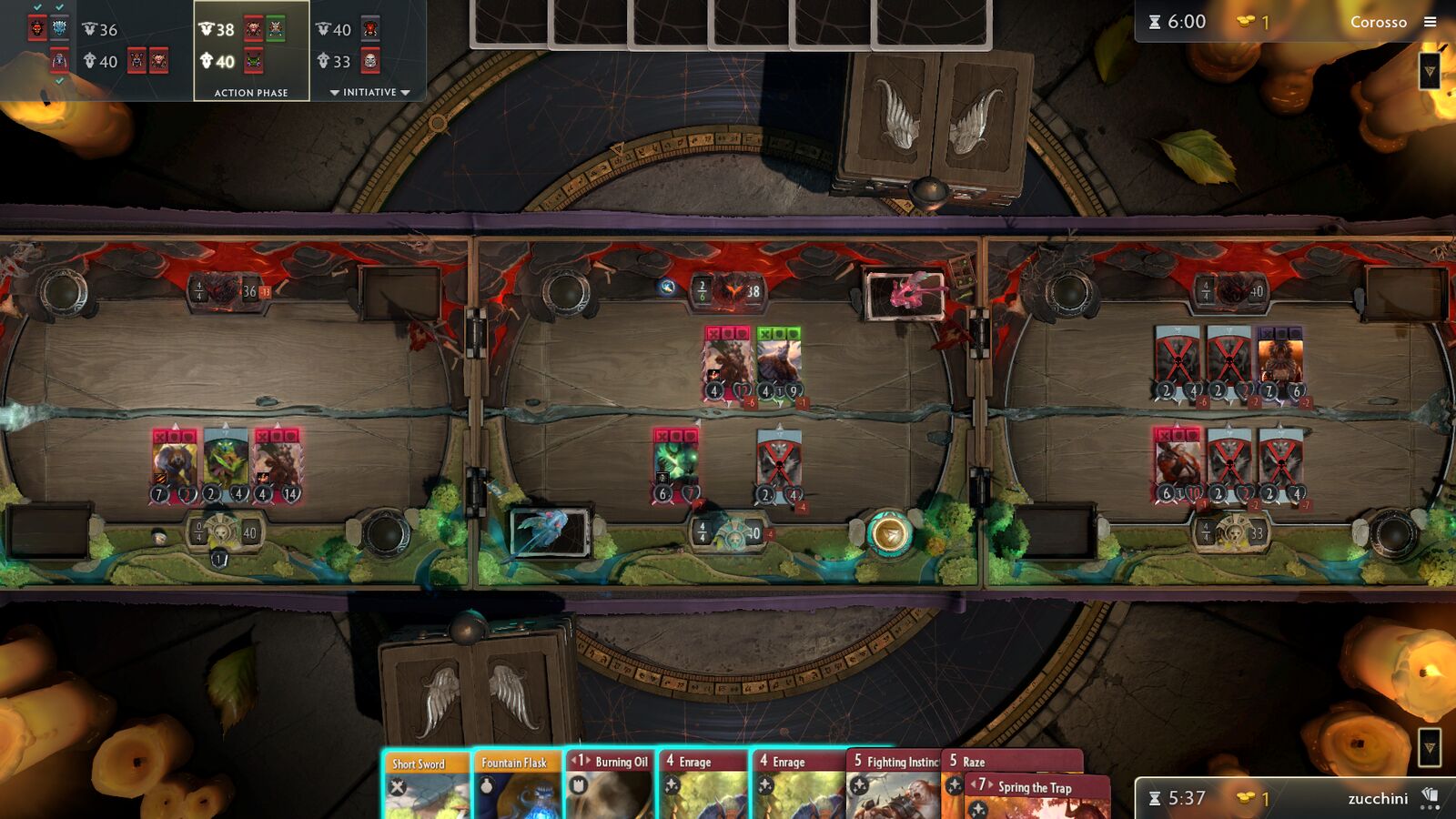How much will it really cost to build an Artifact collection?
Players have questioned the cost of Valve's card game, but it isn't as pricey as feared
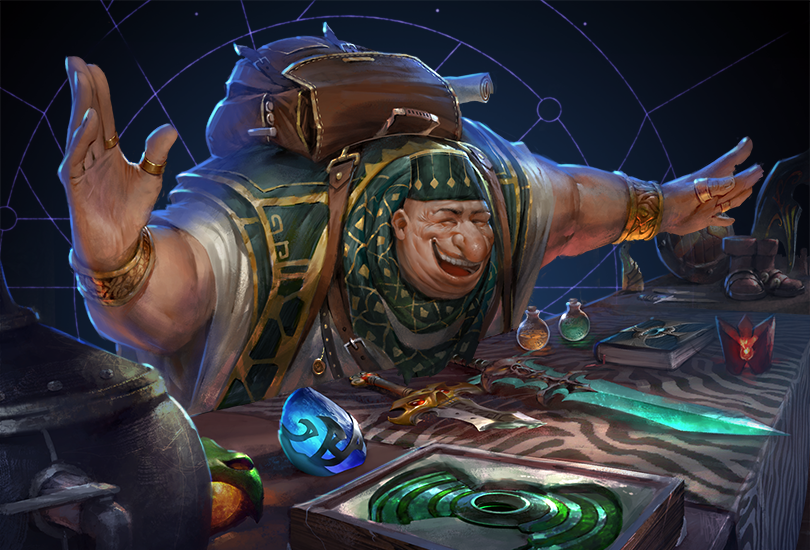
You don't need to have dropped 87 grand on an alpha Black Lotus to know that collectible card games have always been an expensive hobby. In the physical realm, a single competitive Magic deck can easily cost $200, but Hearthstone has always had a fuzzier relationship with cost. Technically, it's a free-to-play game, but if you want to build a competitive collection without spending a dime, it's a hell of a grind. In my analysis of the cost of Hearthstone, I estimated that a committed player will be able to amass around half a full collection, provided they're willing to play the game like a second job.
Unsurprisingly, Hearthstone's rivals tend to be somewhat cheaper in order to create competition versus the market leader. Eternal even goes so far as giving advice on how to play the game without spending anything, presumably because the developers hate money and are trying to bring the system down from within. Into this environment arrives Valve's Artifact, which is upfront about absolutely not being free-to-play, and has already seen a mini revolt over cost before the game has even left beta.
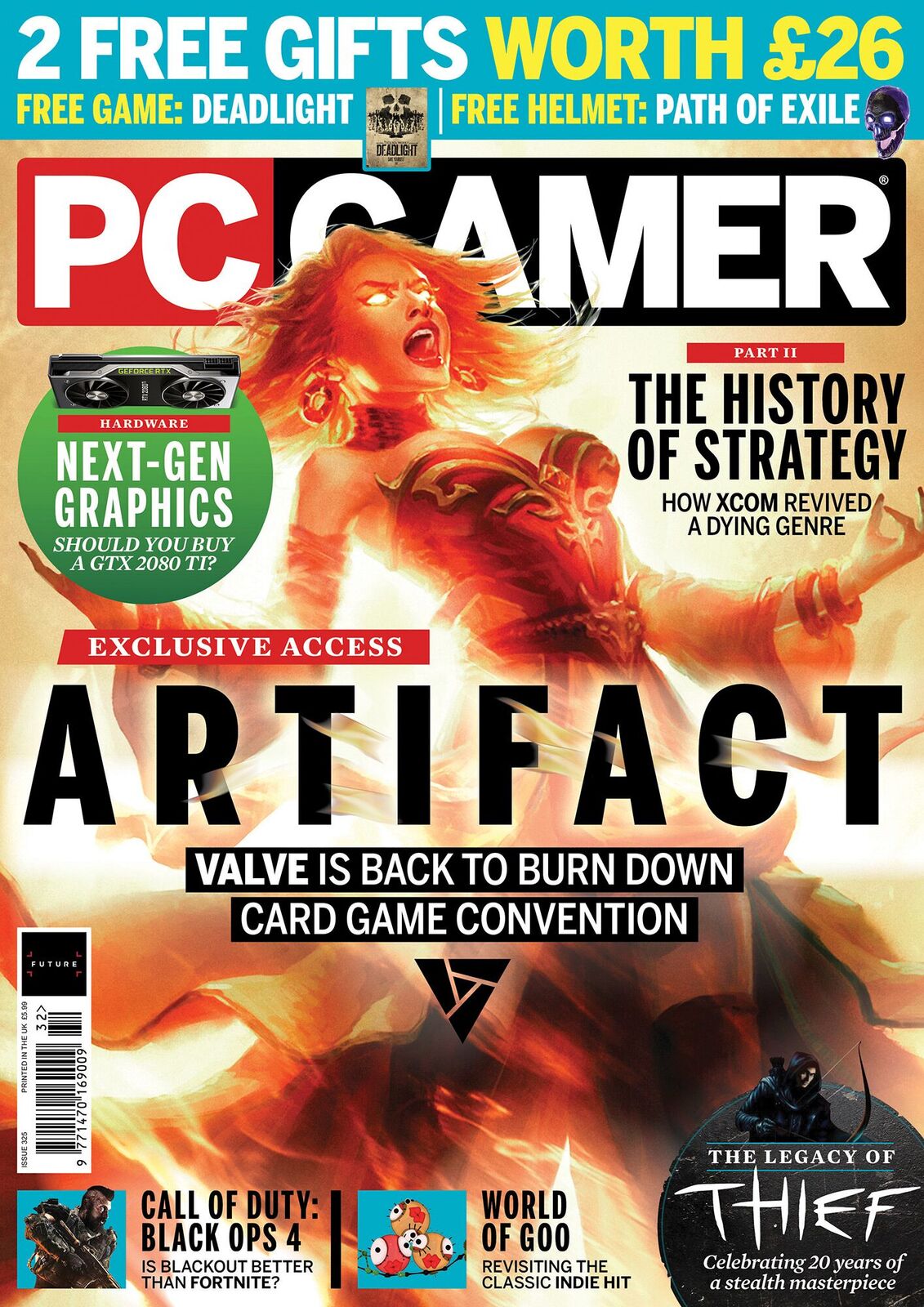
Even if you're not in the Artifact beta yet, the full release is almost here, so make sure you're ready with our tips guide. You can also read impressions from our recent visit to Valve, and get an overview of the game. Artifact is on the current cover of PC Gamer magazine, on sale now in the UK and in the US on December 4th. Become a subscriber today.
In order to play Artifact at all, you're going to need to give Valve $19.99 for the base game. Yep, Artifact is priced like a regular game, just like Gabe used to make. So what does that twenty bucks get you? The answer is, it depends. Your initial "investment" nets two 40-card starter decks, 10 card packs, and 5 event tickets. From there, the only ways to get more cards are to buy more card packs (priced at $1.99 each), buy individual cards from other players on the market, or use your tickets to enter buy-in events that can reward more tickets and card packs in prizes (if you perform well). Event tickets are sold in bundles of five at $4.95 a pop, should you run out.
So far, it sounds expensive. But don't despair, because there's a silver lining in the form of casual phantom drafts, which can be played without event tickets. In all drafts, players take turns to pick cards from newly opened packs and build their decks for the event from those cards. It also happens to be the format that closed beta players have praised the most, and it’s yours to play after the initial purchase at no additional cost, forever. The catch is that in the casual phantom version of draft, you don't get to keep the cards—hence 'phantom', rather than 'keeper'—and there are no prizes to win. You get to try all the cards in the game, but you won't build a collection to make constructed decks with.
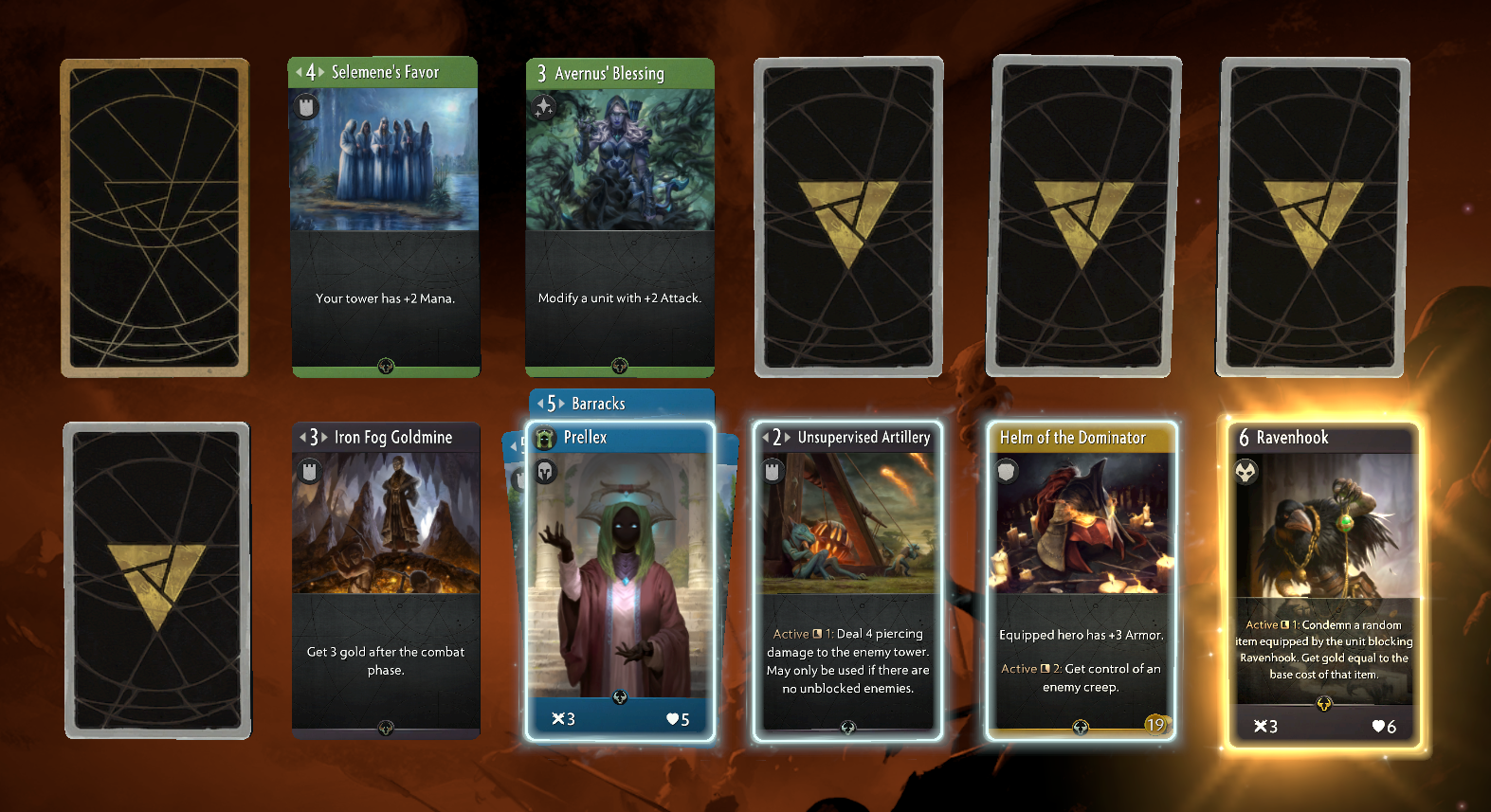
Gotta collect 'em all
There are some other things you can do in Artifact without spending additional money: you can play against bots, you can challenge your friends, and you can play constructed games against random opponents. There are also time-limited events: at launch, there is an event where you can choose from six pre-made decks to play against other players playing one of the same decks. The common feature of everything you can do without an event ticket is that you won't get any cards for your collection from playing.
There's no getting around it: If you want a collection of cards from which to build your own constructed decks, you will have to pay more money in the form of opening packs, entering paid events, and buying/selling cards on the Steam marketplace. Experienced beta players have reported very high win rates in events, and have been able to build an almost complete collection for as little as $120. For comparison, that’s less than it costs for a highly-committed Hearthstone player to get all 135 cards from a new expansion.
I'm $120 into @PlayArtifact and have only 43 cards to complete my collection and 9 cards away from completing my constructed deck. Still have 12 tickets and 21 packs left. Have opened zero packs BTW. (getting Kanna will be the death of me)November 21, 2018
But what about those of us who aren't pros? We want to know what it will cost a regular player to acquire enough cards to build a couple of top tier decks. Right now, the card marketplace isn't available in the beta, so until the game launches on 28 November it's impossible to say for sure. In all card games with a secondary market, it is cheaper to simply buy the deck you want to play from the market, rather than opening packs hoping to find the cards. This will inevitably apply to Artifact as well. Players are starting to report their pack opening statistics on Reddit, and it looks like $300 gets you comfortably to a full collection. You will of course have plenty of extra copies to sell, and still need to buy a few missing rares from the market, but that trade should net out.
The biggest gaming news, reviews and hardware deals
Keep up to date with the most important stories and the best deals, as picked by the PC Gamer team.
Pile 'em high, sell 'em cheap
If you’ve ever played a physical card game, like Magic, you will likely be familiar with the concept of trash cards. The dumpsters behind local game stores are the final home for cards that are literally worthless. In Artifact, however, no card is completely worthless. There is no Hearthstone-style dusting mechanic to enable you to craft other cards, but you can recycle 20 cards of any rarity for an event ticket, which effectively means that even the lowly commons are worth $0.05 each. Each Artifact card pack contains 12 cards, of which at least one is a rare (the highest rarity in the game) and the rest are commons and uncommons. Because of recycling, every opened pack is worth at least $0.60, even if it somehow doesn't include a single playable card. This will cap the price of rares in the market, as it will quickly become profitable to open packs and sell the cards if the prices of rares climb too high.
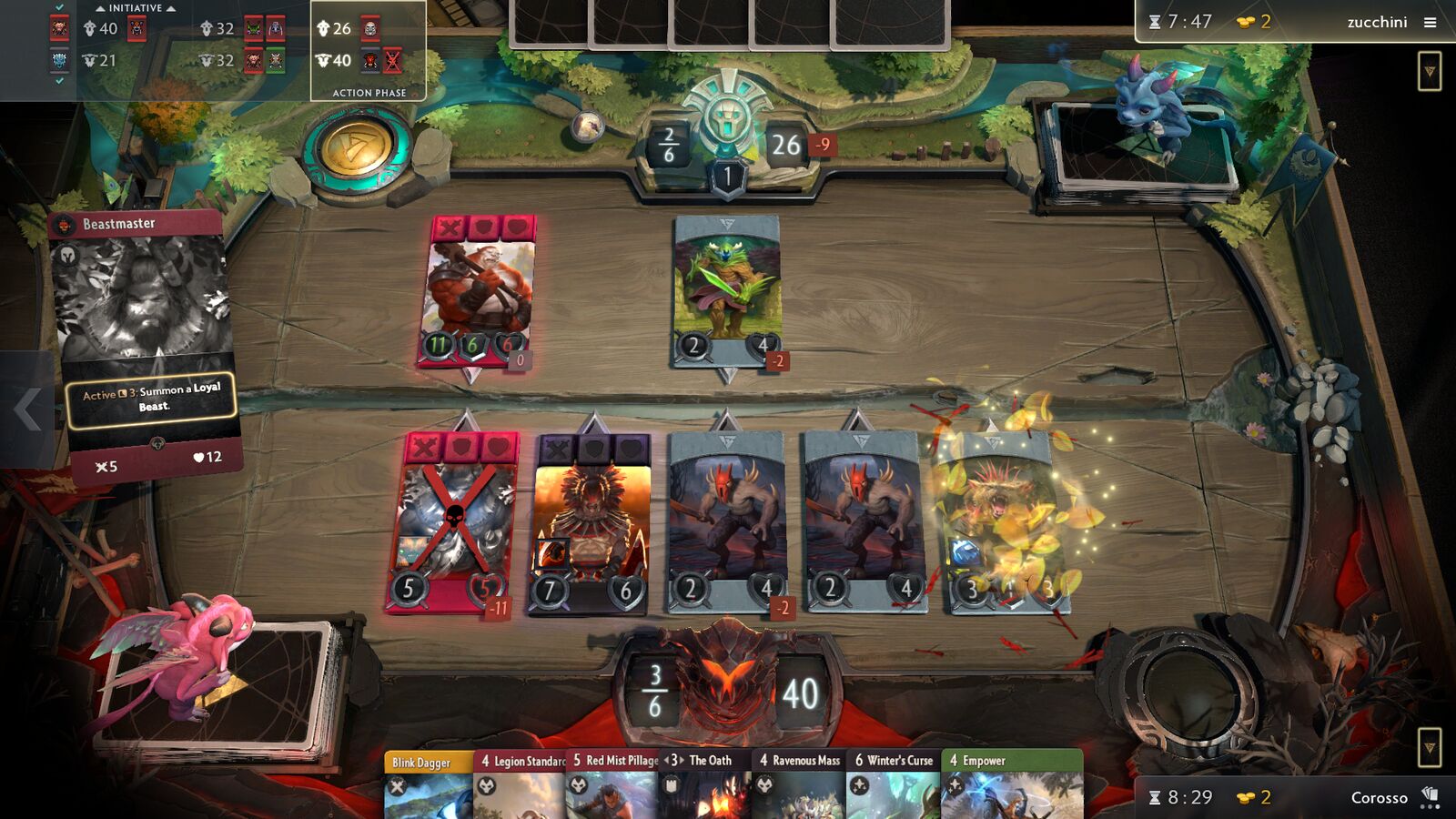
Usually, the value of cards in a pack is less than the cost of the pack, because new packs are constantly fed into the system from drafts and event rewards. The value of a full collection can therefore be expected to be somewhere between $200 and $300 in a week or two after the launch—it can be higher in the first few days, those are always a bit crazy with people rushing to the market to pick up missing pieces for their collections and supply not catching up immediately. If this does prove the case, the situation compares favorably to Hearthstone’s cost of around $200 for a full expansion set for an active player—and in Artifact, you can also sell your cards if you no longer want them, whereas every penny spent on Hearthstone is gone for good.
Based on these costs, you should expect competitive decks to cost under $100, and possibly closer to $50. Pre-order the next Hearthstone expansion or buy a top tier deck in Artifact? At that point, the choice is yours.
Artifact is not especially expensive... you can recover much of the money you spend on it should you decide to move on.
Artifact is going to cost money to play. That’s a fact. You can play all of its digital competitors for free, and typically you can also grind your way to a top tier deck or two (even though it takes quite a bit of time). When you want to play a new deck immediately, or when you crave variety, that’s when money comes in. If you’ve already given up on being free-to-play (by the way), and moved on to spending actual cash, then Artifact is not especially expensive in comparison to other card games. In fact, with a working secondary market, you can recover much of the money you spend on it should you eventually decide to move on.
Finally, if you love to draft, Artifact is by far the easiest game to do that—just remember that no amount of money is going to help your brain cope with trying to do math across three different boards simultaneously.
